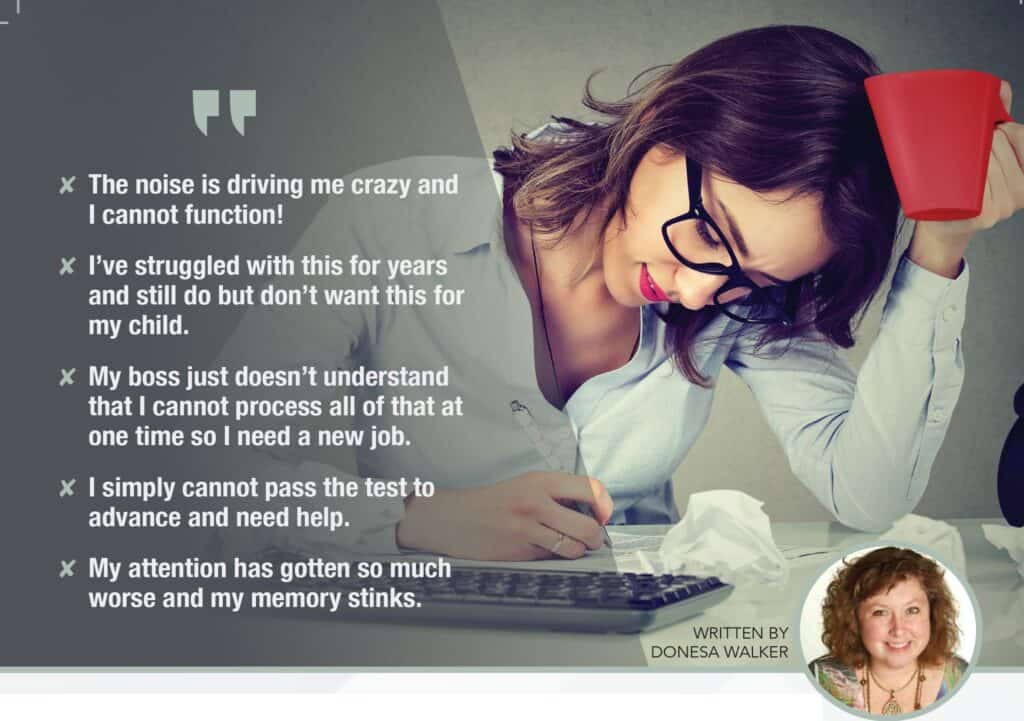Mind Shame and Learning Disabillities

Removing the Stigma for Adults with Learning Disabilities
Part 2: “Cindy” and “Brad”
Many adult with learning disabilities feel extreme embarrassment because they have difficulty with tasks that so many others find easy. Specialists at Children of the Code coined this term mind shame. Mind shame in adults leads to many emotions such as anxiety, depression, attention issues, and guilt. The best way to deal with mind shame is openness. We should accept that not everyone thinks and learns the same way. The solution is to get help to find out how your brain works and stop comparing yourself to others.
“Cindy” loved her job but felt very overwhelmed.
She could not function with all of the distractions and auditory overload that was causing her to lose focus and be unable to feel success at her job. The situation was getting worse and worse. Cindy talked to a friend whose child had gone to LearningRx. She decided to see if they helped adults with learning disabilities too. After testing, Cindy found out that her auditory input was being overloaded. She was completely losing focus due to the amount of auditory data that her brain was trying to process when it wasn’t working at peak efficiency.
After enrolling in a program with a personal brain trainer, Cindy began to understand her own brain and how to tune it efficiently when the auditory load became too much. She understands what exercises reduce her frustration and allow her brain to function at peak capacity. Yes, this is a blatant testimonial. The point is that Cindy did not allow the SHAME of not being able to cope to overwhelm her and cause her to leave the job that she loved. She was able to embrace that there was an issue and it could be addressed.
“Brad” struggled with managing his day-to-day schedule.
He was constantly behind. Although he owned his own business, his lack of management was impacting his home life and causing conflict in his family. Brad wanted to be able to achieve more balance. His brain would not allow him to do all the things he needed to do efficiently. He went to a counselor who was helping him with the anxiety. Juggling his job and home life was just overwhelming him. His counselor recommended that he get testing to identify what was causing the underlying issues. A local psychologist tested Brad. He discovered that Brad had an executive functioning issue that was not allowing his brain to do the CEO duties efficiently.
Brad chose to partner with his counselor to address this. He discovered that by taking some planning time in the mornings before he took off on his jobs; he could balance things better and complete jobs in a timelier manner. This allowed more home time with his family and alleviated the struggle. Again, this is an example of someone who took charge and decided for themselves that it was time to end the struggle.
For more information about how brain training can help with learning disabilities: contact LearningRx Shreveport Bossier. Call us at 318.797.8523 or email us at shreveport.la@learningrx.net. You can also go to our website to learn more about brain training and Learning Differences.
Previously published in LOLA magazine and The Collective by Donesa Walker. Some changes have been made to make the article more blog friendly.







